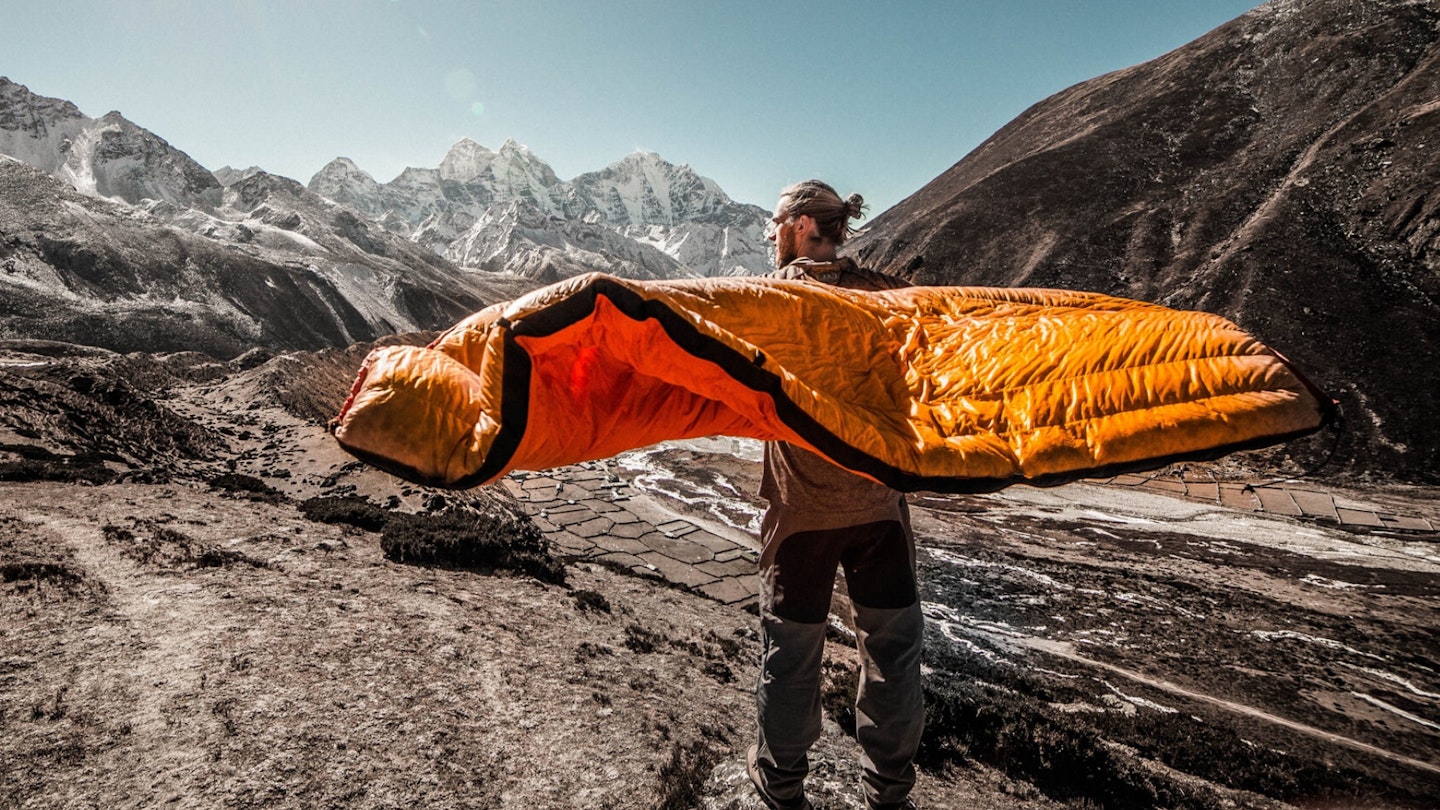Sleeping bags are something that is very widely misunderstood by the average Joe. That's why we've created this guide to clearly explain sleeping bags in order for you to make an informed decision about which one to buy.
Jump to:
There is no such thing as an all-season sleeping bag
Despite what many regular people want, and what a lot of sellers advertise, there is no such thing as an all-season sleeping bag. Sleeping bags are designed to have a specific optimal temperature rating, be it ten degrees, zero degrees, or minus thirty degrees. There is no bag that is perfect for every temperature.
Why?
It comes down to design. There are two different shapes of sleeping bag you can get, and three different types of insulation. The insulation we cover below but with regards to sleeping bag shape, there are rectangular and mummy-shaped sleeping bags.
Rectangular sleeping bags are quite roomy and aren't usually very thick. They are meant for milder temperatures, such as on a summer camping holiday or music festival. They are very simple and are the type most people usually opt for.
Mummy sleeping bags are designed for optimum heat retention. Snug at the shoulders and tapered down at your feet, they minimise the amount of space that needs heating and therefore increase the efficiency of your body heat, which is what keeps a sleeping bag warm. Being this shape also helps them pack down to less. The zips are often only 3/4 length at most which, again, helps with heat retention and staying compact. This shape of a sleeping bag is meant for those who hike or undertake anything that involves sleeping in cold temperatures - often sub-zero.
Types of sleeping bag insulation
As we mentioned, there are three ways that sleeping bags are insulated.
Down insulation
The incredible little feathers that come from geese, ducks, and other birds. In terms of warmth-to-weight, there is nothing synthetic or natural that is as good as down. That is why the best sleeping bags and jackets use this type of insulation, but it isn't faultless. Here's a quick overview of the characteristics of down:
• Unmatched warmth-to-weight ratio
• Fantastic longevity if taken care of
• Expensive (you can find cheaper down products, but it almost certainly will have been sourced via inhumane means)
• Becomes extremely heavy and ineffective when wet (some down products have water-resistant treatment such as Nikwax to help combat this)
What does fill power mean?
Think of fill power as the quality of the down, not the quantity. The fill power figure (650, for example) refers to how many cubic inches one ounce of down occupies. The more cubic inches down occupies, in other words, how fluffy it is, the better it is at trapping air and insulating. Simple.
So for example, five grams of 900-fill down is fluffier and warmer than five grams of 650-fill down. That is why the 900-fill Therm-a-Rest Hyperion sleeping bag has the same temperature rating as the Questar but weighs much less.
How do I store my down sleeping bag?
When you're at home, keep your sleeping bag in a looser cotton storage bag, not the compression sack it comes with. These are usually supplied with sleeping bags and helps look after the down.
When on a hike, unpack your down sleeping bag about 15 or 20 minutes before going to sleep. This will allow time for your sleeping bag to puff up.
In terms of washing down sleeping bags, avoid regular washing liquid because it can degrade the down. Instead, use Grangers Down Wash. It cleans the fabric without damaging the down. It can be used on down jackets, too.
Synthetic insulation
Polyester or synthetic insulation is what you tend to find in camping sleeping bags. As an alternative to down, it's not as warm but some modern synthetic insulation is not too bad and is getting better. Like down, it has its good and bad points:
• Synthetic-filled sleeping bags are much cheaper than down-filled bags
• It can cope with the damp
• Synthetic sleeping bags with low temperature ratings are quite bulky
While they all have an attractive price point and low-temperature ratings, they are noticeably heavier than their down equivalents. Therefore, synthetic bags are great for camping in a range of temperatures when you don't need to carry them on a long hike.
Hybrid insulation
Some sleeping bags use down and synthetic insulation to try and develop reasonably priced, warm, fairly light, and somewhat water-resistant sleeping bags. With synthetic insulation getting better, hybrid sleeping bags are becoming more popular.
• Synthetic insulation on the underside helps with warmth when sleeping on damp ground
• Down insulation on top helps with warmth and lightness
• Often better price point than full down, but more expensive than full synthetic
Recommended sleeping bags:
Best wide-fit sleeping bag
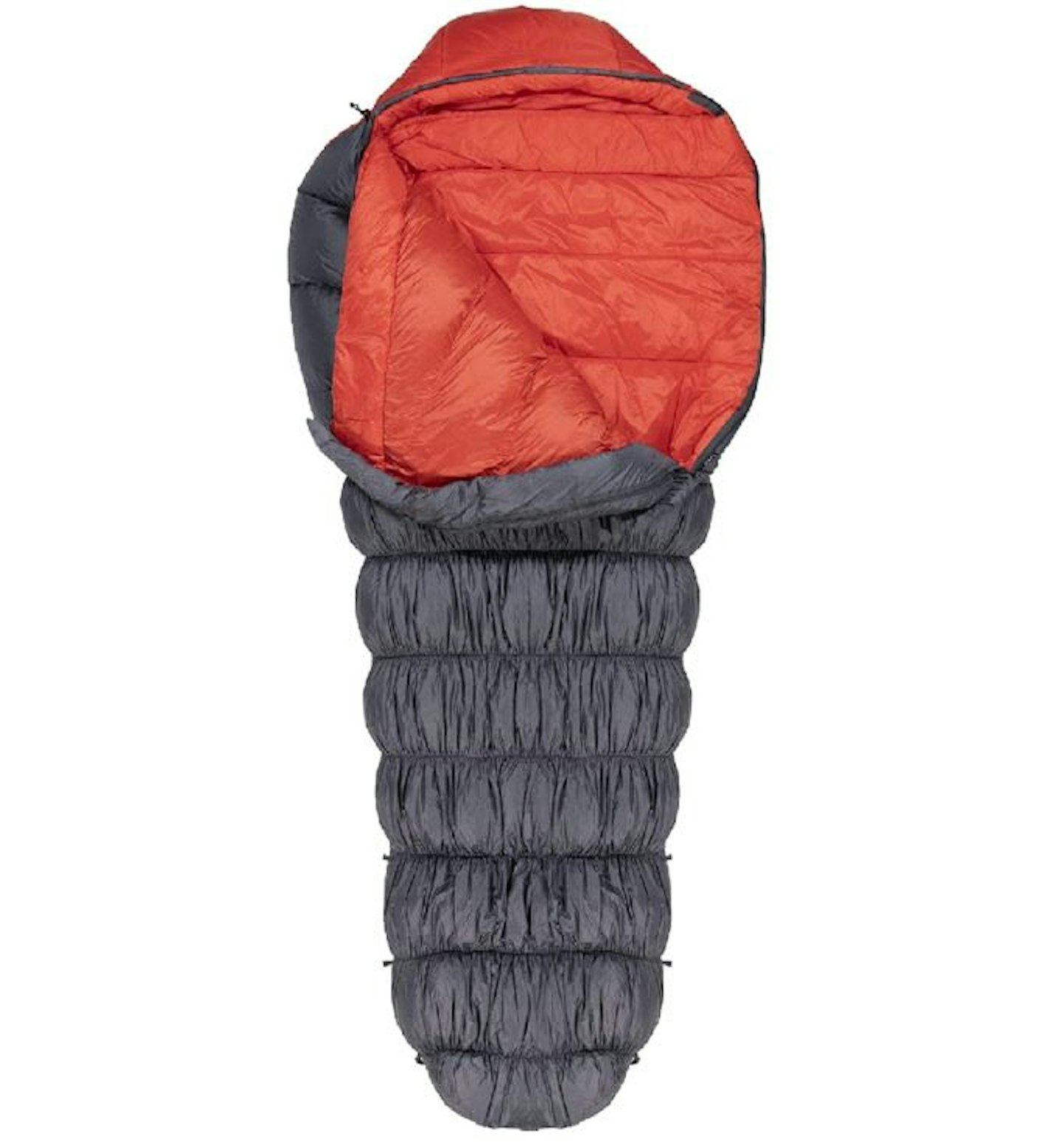
Guaranteed to keep you sleeping soundly even on the coldest of nights, this sleeping bag from Klymit is super comfortable and the length can be adjusted for the optimum length. It's a nice wide shape which is great for the extra room, but it does mean it doesn't pack up quite as small as some of the others on this list.
Specs:
RDS 650-fill down on top
Synthetic fill underneath
Semi-mummy shape
Low negatives comfort temperature (-18°C temperature limit)
1.8kg weight
Versatile 3-season sleeping bag
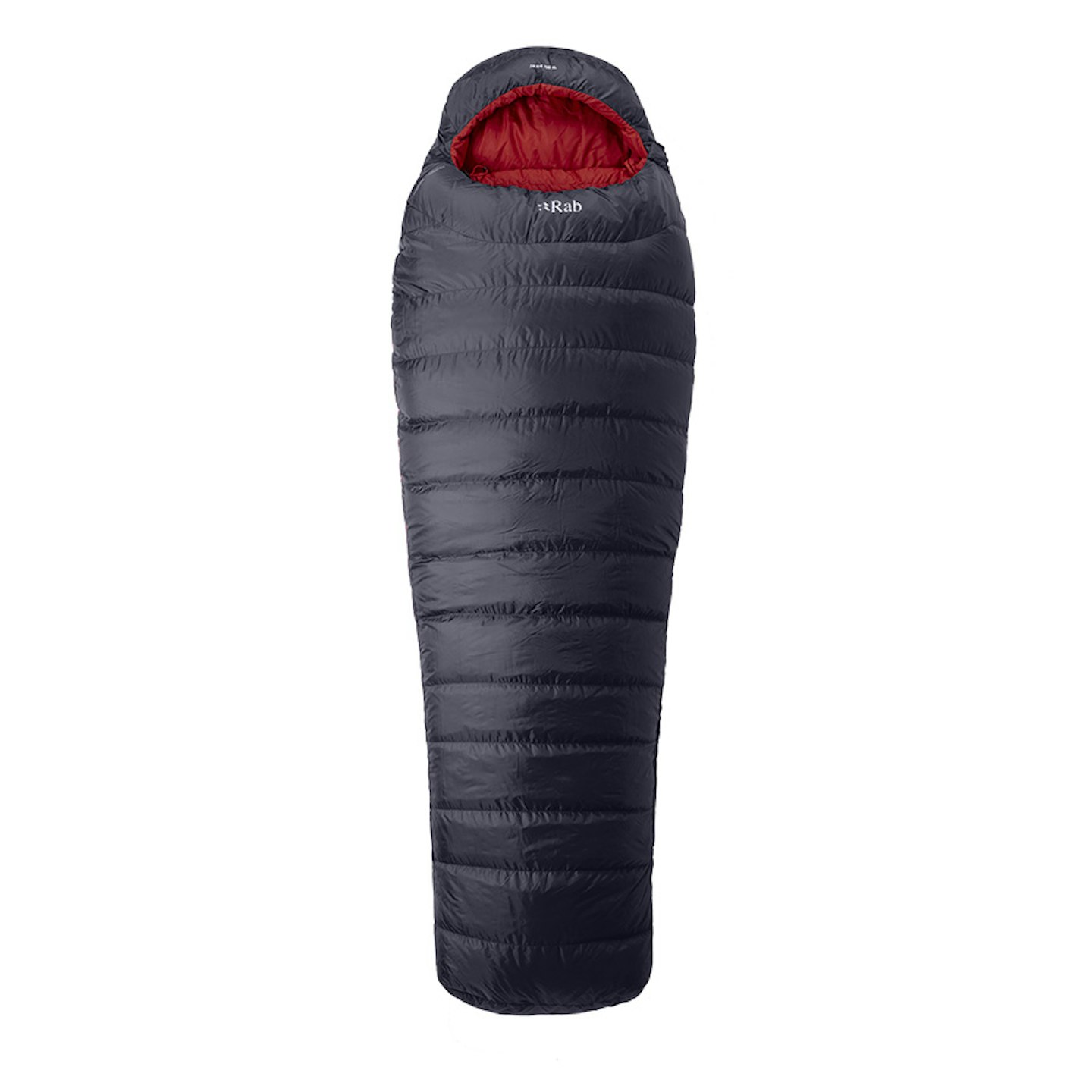
www.cotswoldoutdoor.com
Rab is a household name when it comes to outdoor gear, and the Ascent 700 is a mid-weight, down-filled sleeping bag that will see you through many a season. The trapezoidal baffle design helps to eliminate cold spots, and the internal collar and hood drawcord aid in creating a snug fit.
Specs:
RDS-sourced, Nikwax-treated water-resistant
650-fill duck down
Durable Pertex® Quantum DWR outer fabric
3/4 zip
Semi-mummy shape
-2°C comfort rating
1.290kg weight
Full alpine winter sleeping bag
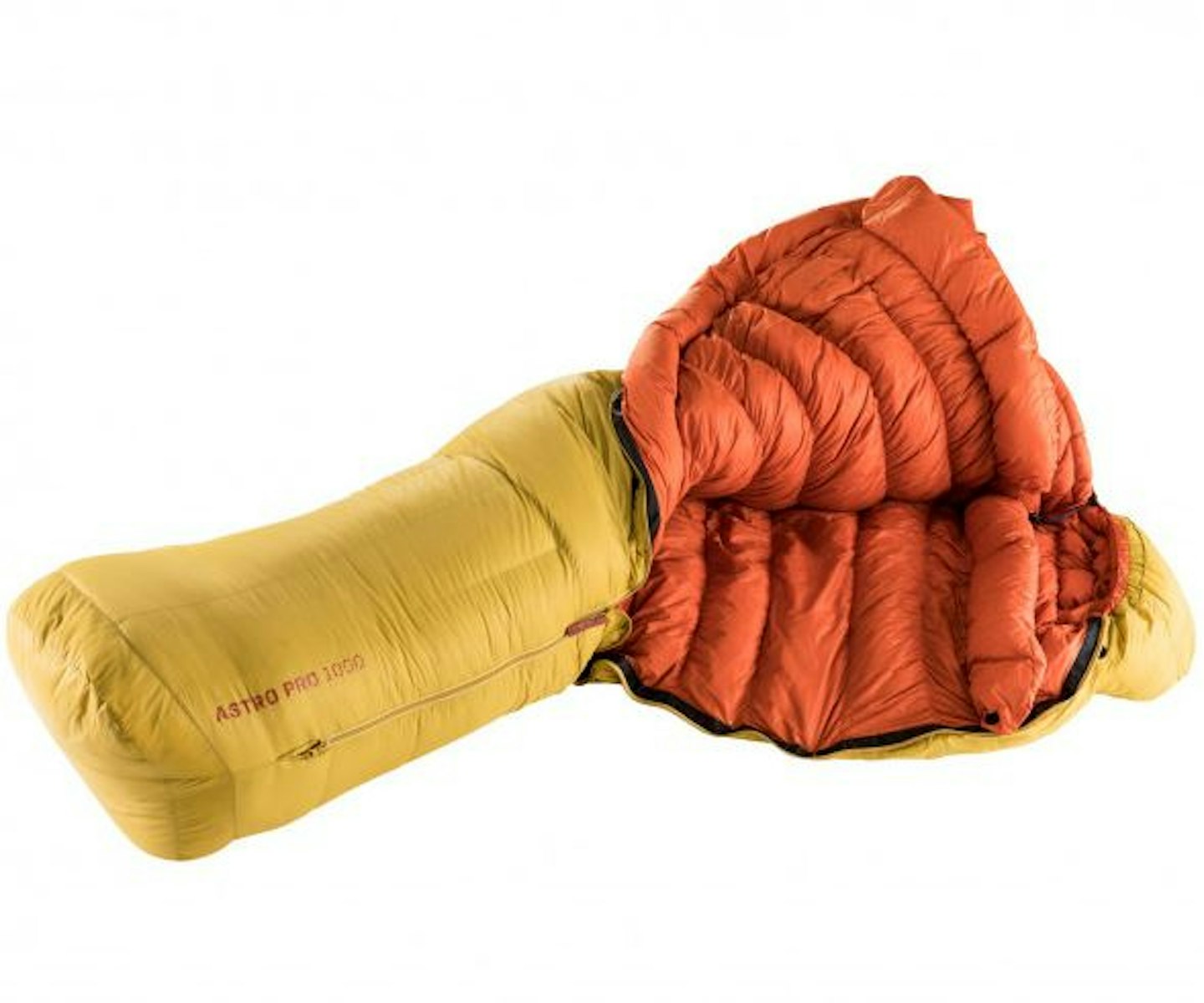
www.alpinetrek.co.uk
Super durable and made for dedicated trekkers and campers, the Deuter Astro Pro 1000 is lightweight and comfortable, even in the coldest and wettest of conditions. It's expensive, but it's worth it. For the eco-conscious among you, it's also Bluesign certified.
Specs:
RDS-sourced down
DWR-treated outer
Mummy shape
Bluesign-approved, PFC-free
Available in regular and long
Full-zip
-12°C comfort rating (-44°C extreme)
1.5kg weight
Perfect for summer camping
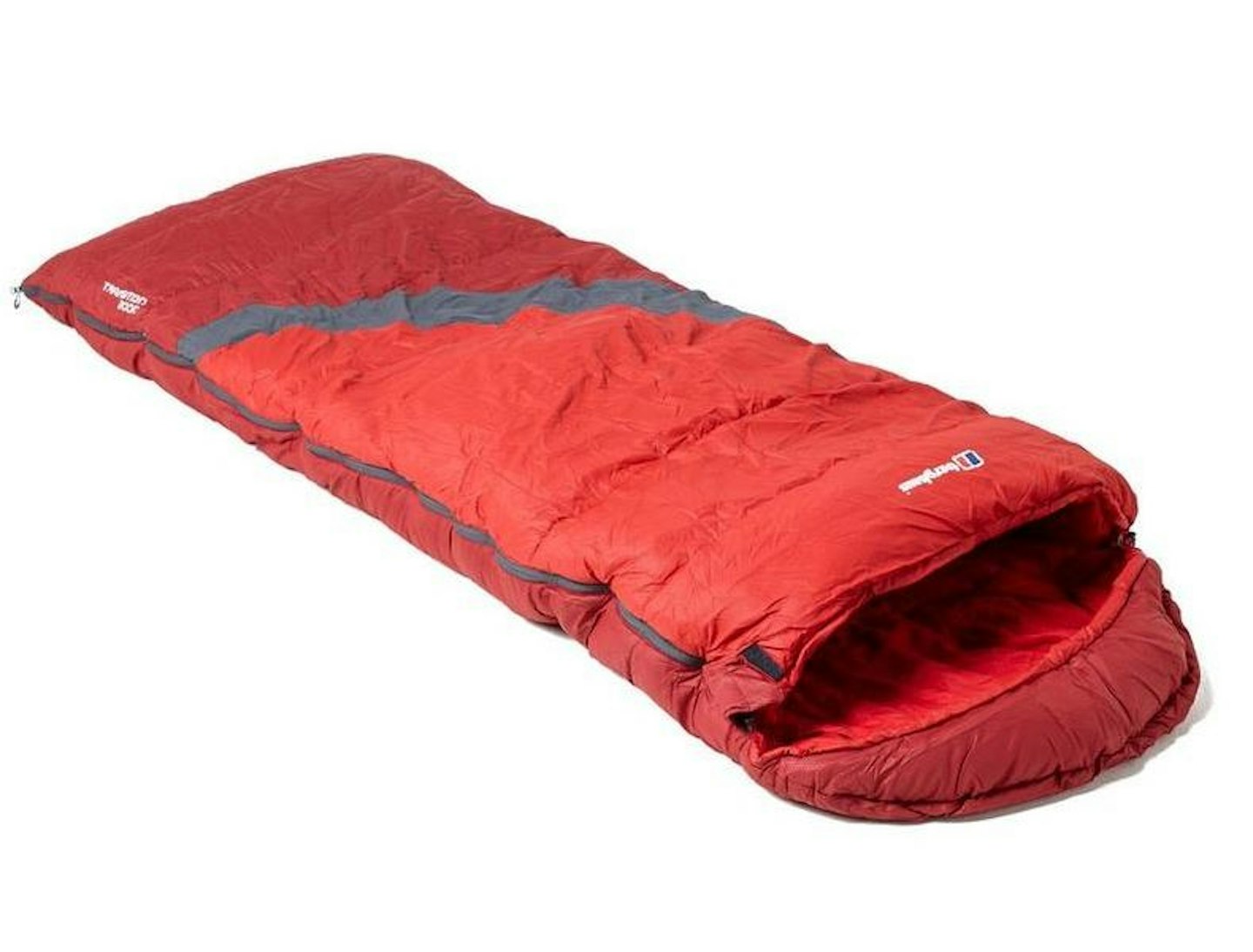
www.gooutdoors.co.uk
A great summer option, this breathable sleeping bag from Berghaus is a good size and is luxuriously comfortable.
Specs:
Rectangular shape
Synthetic fill
Inner security pocket
Full-zip
5°C comfort rating
1.83kg weight
Best synthetic 3-season sleeping bag
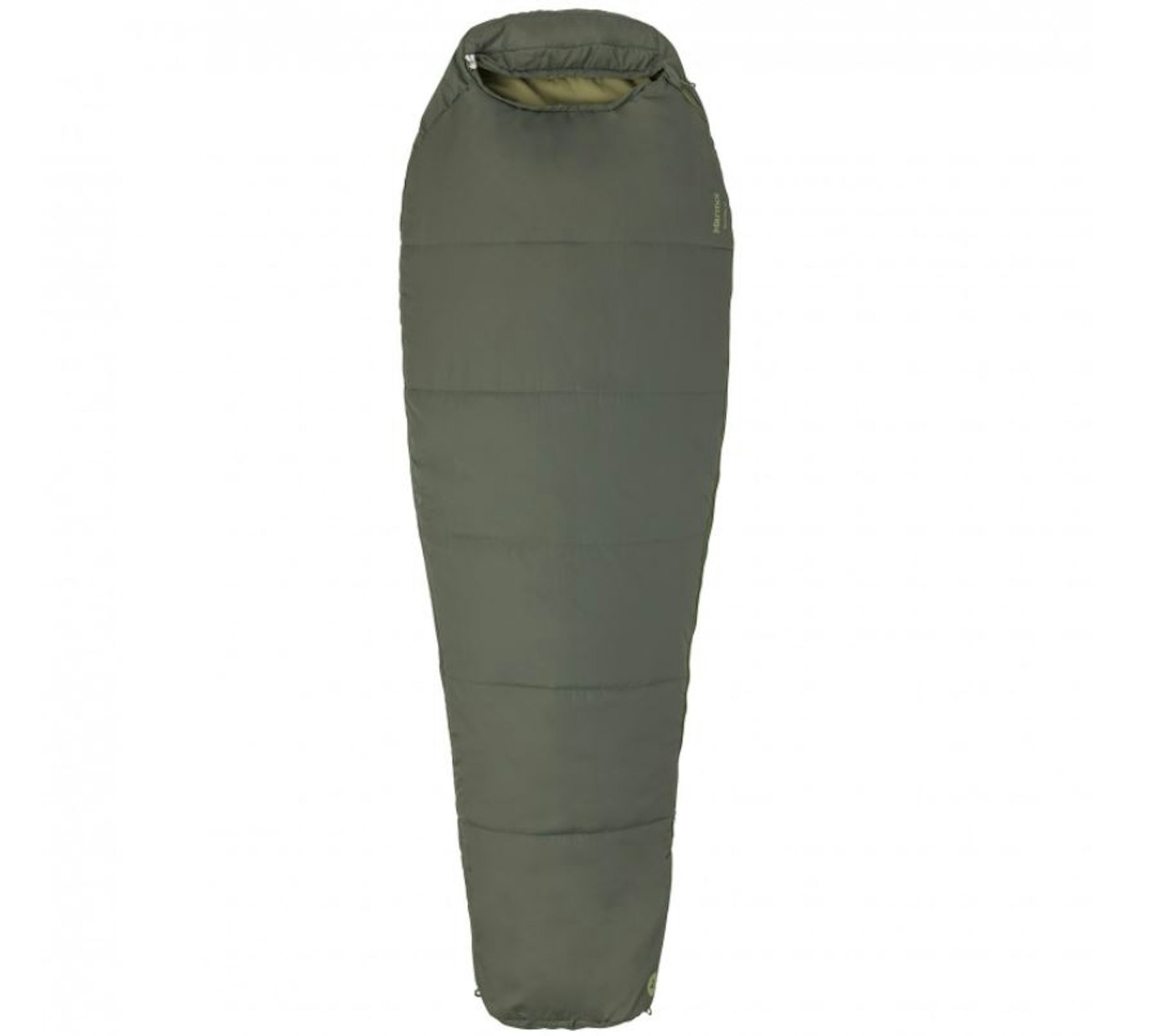
This sleeping bag from Marmot combines heat, comfort and low weight perfectly. It has an anatomically optimised fit and comes in two sizes: regular and long.
Specs:
Mummy shape
Synthetic fill
Long and regular lengths available
Bluesign-approved fabric
7°C comfort rating
1.037kg weight (regular)
Best lightweight synthetic hiking sleeping bag
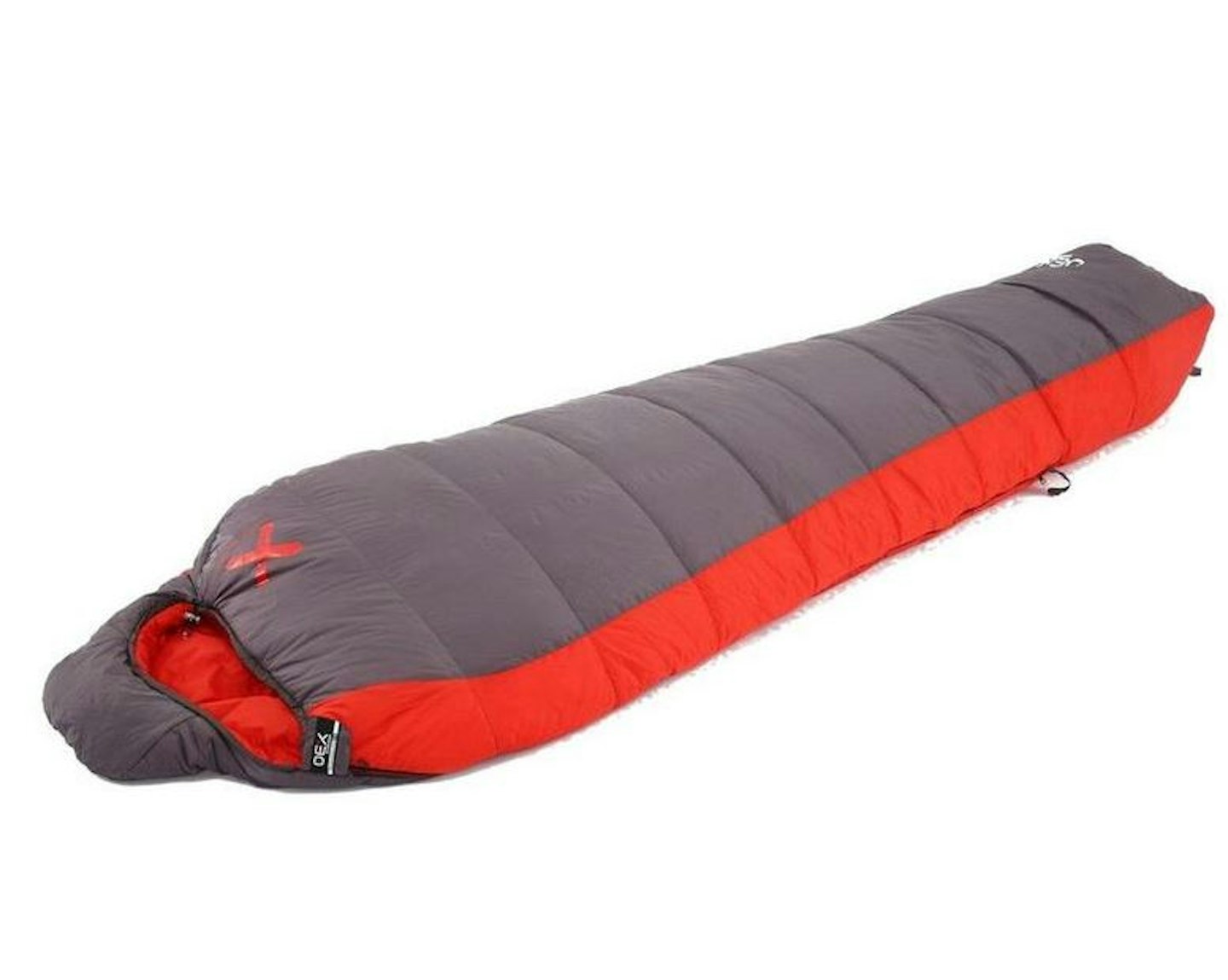
www.gooutdoors.co.uk
Suitable for year-round use, this sleeping bag from OEX is soft, warm and comfortable, but lightweight and compact enough to carry around with you on your travels. It has an internal pocket to keep any valuables safe and will keep you comfortable down to around -8u00b0C.
Specs:
Mummy shape
Synthetic fill
Internal security pocket
Impressive lightness
3/4 zip
-1°C comfort rating
1.125kg weight
Best double sleeping bag
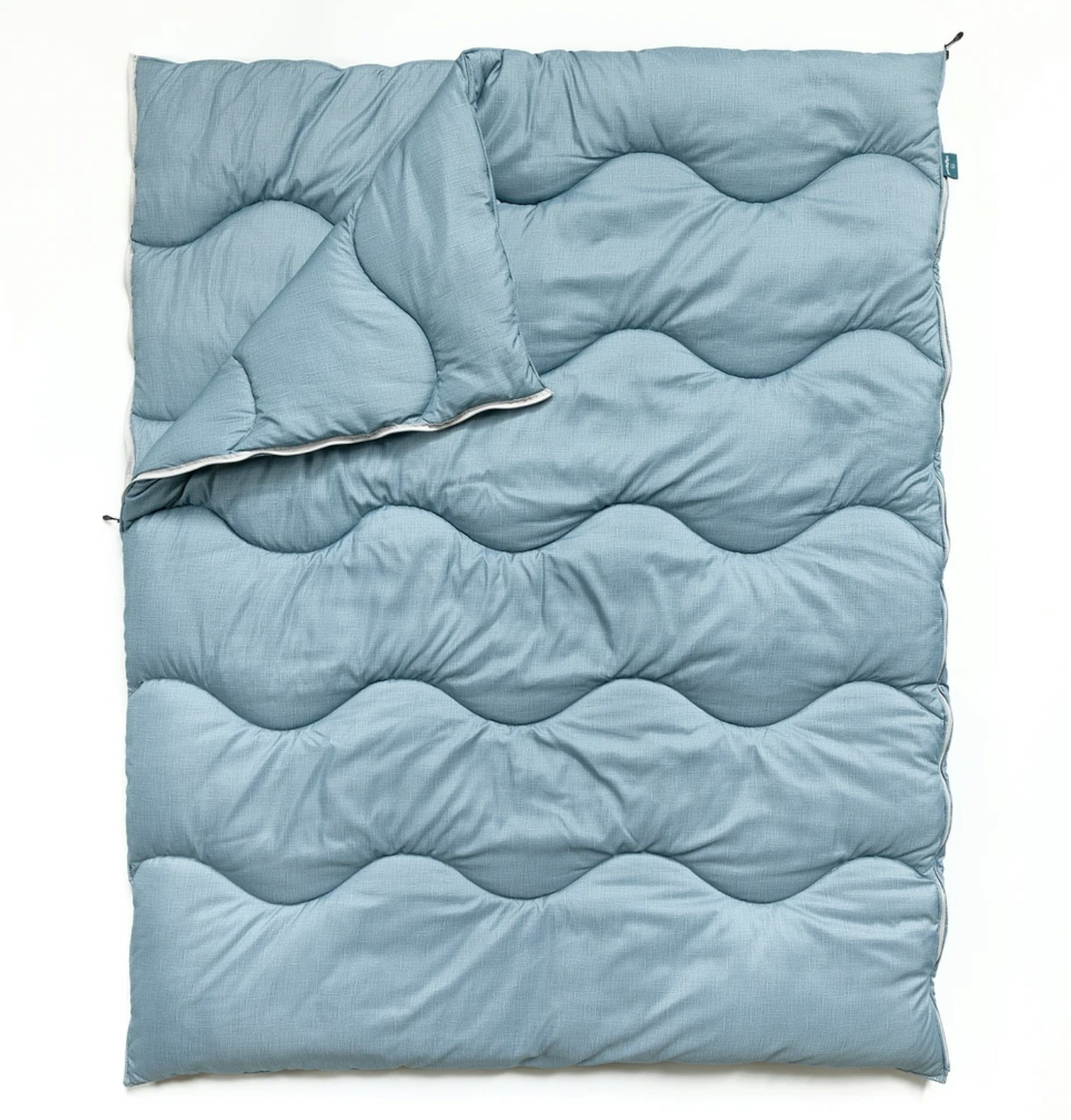
www.finebedding.co.uk
Looking for something a little different? Love to snuggle up with your other half when you're camping? This 3-in-1 sleeping bag from Night Owl is a real breath of fresh air. Not only does it look modern (and REALLY nice) compared to traditional sleeping bags, it's a multi-use product that makes camping so much easier. Easy access zips and the fact that it's machine-washable are two major plus points, along with the fact that it's hypoallergenic and made from 100% Smartfilu00ae Polyester from recycled PET bottles.
Specs:
Double sleeping bag
Rectangular shape
Polyester cover, soft-touch fabric
Full-zip (with auto-lock)
100% Smartfil® Polyester from recycled PET bottles
Machine-washable
7.0 tog (suitable for year round use)
Tried and tested by Jade Moscrop, Deputy Commercial Content Editor:
"I'm a firm duvet-only camper (don't judge me) but it's always a faff to pack it up before a trip. When I came across this sleeping bag, I was thrilled to try it out. It can be used as a double or two singles, has two-way access so you don't disturb your fellow bed-mate, and has an auto-lock zip to keep you from accidentally unzipping yourself in the middle of a chilly night.
"I used it over a relatively warm weekend in August, with one mild night and one cold one. Both nights, I found myself at the perfect temperature. I didn't feel the need to kick off the sleeping bag or unzip it at any point and I wasn't cold, either. It's a light sleeping bag, it almost feels like it'll be too light to be able to keep you warm, but boy does it warm up quickly. It looks great - far more aesthetically pleasing than your standard sleeping bag, and you get the added bonus of sleeping next to your partner.
"I love the fact that it can be machine-washed as it makes that dreaded unpacking after camping so much easier. And for £95? It's a no-brainer - I'll definitely get many years of use out of it."
What do I need to consider when buying a sleeping bag?
• The manufacturer makes all the difference in the longevity and quality of your sleeping bag. From zips to fabric to down sourcing, make sure you do your research into the brand before you buy. Remember, it's worth paying more upfront because it costs less over time.
• Make sure the down is RDS-sourced.
• There are female sleeping bags around that have added insulation at the chest and feet.
• There are different sizes available to suit different body sizes. Check which is right for you. Remember, the right fit keeps you warm. Too big and it won't keep you as warm as it could.
• Know yourself. Temperature ratings are guidelines. If you know you feel the cold, err towards warmer bags. And vice versa if you don't feel the cold so much.
• Know what you want a sleeping bag for - camping? Mountaineering? Hikes in the Lake District? Know before you buy.
• Zip designs vary from half-length to full-length zips – the former offering a weight saving, the latter making a more versatile bag for hot nights. Zips may come with an anti-snag strip behind them to prevent jamming, or a wide insulation-filled baffle to prevent cold spots along the length of the zip.
• The fit and degree of insulation in the hood is important in cold conditions. A drawcord will be provided to cinch it in, but some hoods are easier to adjust, making their fit and comfort level better than others.
• A good shoulder baffle keeps the air down in the bag, which increases its insulating ability. The best can be adjusted to fit closely, while lighter or lower-priced bags may have non-adjustable shoulder baffles or no shoulder baffle at all.
Don't forget to keep warm during the day, too! We've got a hikers guide to keeping warm and rucksacks that'll handle all your gear.
What to read next:
Subscribe to the What’s The Best Newsletter to keep up to date with more of the latest reviews and recommendations from the rest of the What’s The Best team.
